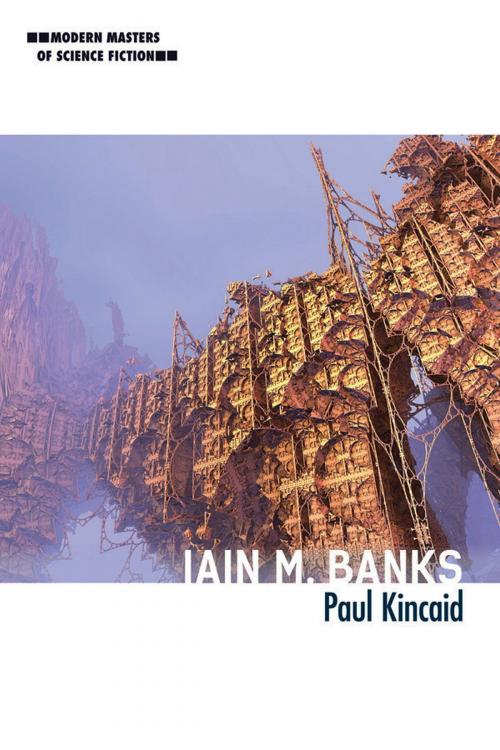Iain M. Banks
Fiction & Literature, Literary Theory & Criticism, Science Fiction, Biography & Memoir, Literary| Author: | Paul Kincaid | ISBN: | 9780252099564 |
| Publisher: | University of Illinois Press | Publication: | May 12, 2017 |
| Imprint: | University of Illinois Press | Language: | English |
| Author: | Paul Kincaid |
| ISBN: | 9780252099564 |
| Publisher: | University of Illinois Press |
| Publication: | May 12, 2017 |
| Imprint: | University of Illinois Press |
| Language: | English |
The 1987 publication of Iain M. Banks's Consider Phlebas helped trigger the British renaissance of radical hard science fiction and influenced a generation of New Space Opera masters. The thirteen SF novels that followed inspired an avid fandom and intense intellectual engagement while Banks's mainstream books vaulted him to the top of the Scottish literary scene. Paul Kincaid has written the first study of Iain M. Banks to explore the confluence of his SF and literary techniques and sensibilities. As Kincaid shows, the two powerful aspects of Banks's work flowed into each other, blurring a line that critics too often treat as clear-cut. Banks's gift for black humor and a honed skepticism regarding politics and religion found expression even as he orchestrated the vast, galaxy-spanning vistas in his novels of the Culture. In examining Banks's entire SF oeuvre, Kincaid unlocks the set of ideas Banks drew upon, ideas that spoke to an unusually varied readership that praised him as a visionary and reveled in the distinctive character of his works. Entertaining and broad in scope, Iain M. Banks offers new insights on one of the most admired figures in contemporary science fiction.
The 1987 publication of Iain M. Banks's Consider Phlebas helped trigger the British renaissance of radical hard science fiction and influenced a generation of New Space Opera masters. The thirteen SF novels that followed inspired an avid fandom and intense intellectual engagement while Banks's mainstream books vaulted him to the top of the Scottish literary scene. Paul Kincaid has written the first study of Iain M. Banks to explore the confluence of his SF and literary techniques and sensibilities. As Kincaid shows, the two powerful aspects of Banks's work flowed into each other, blurring a line that critics too often treat as clear-cut. Banks's gift for black humor and a honed skepticism regarding politics and religion found expression even as he orchestrated the vast, galaxy-spanning vistas in his novels of the Culture. In examining Banks's entire SF oeuvre, Kincaid unlocks the set of ideas Banks drew upon, ideas that spoke to an unusually varied readership that praised him as a visionary and reveled in the distinctive character of his works. Entertaining and broad in scope, Iain M. Banks offers new insights on one of the most admired figures in contemporary science fiction.















